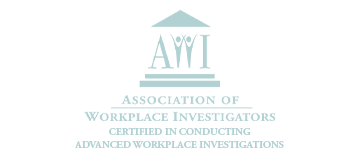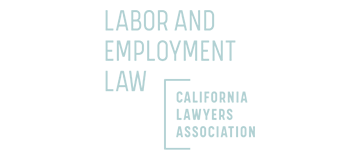Every Company’s technology, devices, ESI, systems, practices, and processes are unique, and therefore one-size fits all policies and procedures are insufficient. However, we see some issues occur repeatedly or similar types of lawsuits that could be avoided if the Company improved their policies and practices. Here are some of the most common issues employers face in this regard:
Customizing Your Company's Policies, Practices & Processes
At Sherman Law Corporation, we believe that a strong infrastructure is crucial to compliance and effectively managing employee relations. In fact, failing to update and enforce workplace policies, practices, and processes expose California employers to individual and class-action lawsuits. Our experienced employment attorneys can help adapt your Company policies and practices to safeguard your Company’s crown jewels and stay legally compliant.
What are the potential issues regarding Company policies and practices?
- While employers generally understand their record-keeping obligations, virtually all documents that contain Company information are created, transmitted and/or stored electronically (ESI). In the absence of updated, customized policies and implementation of reasonable measures, it can be nearly impossible to maintain control, secure, restrict access, limit use and protect your Company’s non-public ESI – particularly when this information can be found in current and former employee’s personal electronic devices, servers, shared home computers, thumb drives, etc.
- When the Company receives information that puts the Company on notice of anticipated litigation, state and federal laws require Companies to preserve all potentially relevant ESI and issue legal holds. This notification is typically given long before any litigation is filed.
- Companies can lose trade secret protection by the Courts if they fail to implement reasonable measures to protect unauthorized access and misappropriation of a Company’s ESI non-public information. In these severe cases, the irreparable damage caused by the misappropriation may be irreversible.
- Failure to account for all Company property and information used by all employees not only puts a Company’s non-public confidential information and proprietary trade secrets at risk, but also violates an employer’s record-keeping and preservation obligations. This may result in sanctions against the Company if litigation ensues and relevant ESI is no longer available.
- Often times, legal actions arise from employer violations that were based on nothing more than ignorance. Employment laws and Court decisions continue to expand employers’ obligations, and each separate federal and state agency requires employers to comply with a multitude of ever-expanding requirements. Unfortunately, many of these laws, while easy enough to abide by, hold the employer strictly liable, regardless of knowledge or intent, with potential liability extending far beyond the one employee at issue.
- Employee handbooks, written policies, procedures, and agreements constitute an employment contract that sets forth the terms and conditions of employment. If any of these documents contain terms that are unlawful, not tailored to your Company’s actual practices, or is not consistently enforced, then the written documents can be used against the Company to not only prove liability, but also to seek punitive damages.
"It was great working with Lisa Sherman. You always feel that she "has your back." She is very prompt at responding to all concerns and interprets legal matters in a comprehensible way. And she got us very positive results. Highly recommended."
~ William
Sherman Law Corporation’s
Company Templates
Our team at Sherman Law has designed cost-effective flat-fee options for employee handbooks and other template agreements that we help customize for your business. More detailed information about the elements of these packets can be found below.
Pre-Employment Packets
Packets can include:
- Advertisements with comprehensively-drafted job descriptions detailing the essential functions of job, physical and mental requirements, exempt or nonexempt classification, etc.;
- Legally compliant releases of information in connection with pre-employment background checks, including social media inquiries;
- Applicant record-keeping, including documentation of non-discriminatory criteria for selection;
- Employment application forms that preclude unlawful inquiries, with enforceable arbitration agreement;
- Post-offer lawful medical certifications; and
- Offers of employment for exempt and nonexempt employees or employment agreements.
New Hire Packets
Packets can include:
- Required notices/pamphlets provided to employees;
- Employment-at will agreements or employment agreements;
- Commission agreements;
- Acknowledgements to comply with employee handbook, highlighting particular policies;
- Job descriptions;
- Non-disclosure and non-solicitation agreement;
- Agreements regarding wage and hour laws governing hours worked, overtime, meal and rest breaks, and paid sick leave;
- Technology resources policy;
- Company-issued technology, authorized access, and expenses;
- EEO, unlawful harassment, discrimination, and no-retaliation policy;
- Social media policies;
- Workplace violence policies and procedures; and
- Emergency contact forms, required pamphlets, workers’ compensation fraud notice, and physician designation form.
Employee Handbooks, Policies, Procedures, Processes, and Agreements
Employee handbooks, stand-alone policies, processes, and agreements not only set forth the terms and conditions of employment, but also provide a valuable roadmap for the employer. Plus, they serve as a guide to employees before, during, and after issues arise in the workplace.
With the expansion of California laws, coupled with hot-button litigation topics, many policies in employee handbooks and stand-alone policies require immediate attention:
Equal Employment Opportunity (“EEO”), Unlawful Harassment, Discrimination and No Retaliation
California laws are constantly expanding protected conduct. For this reason, employers’ EEO, reasonable accommodation, reporting procedures, and whistleblower/no-retaliation policies must be updated to comply.
Employers with fifty or more employees are required to conduct harassment and anti-bullying training, which has resulted in many employers adopting anti-bullying policies, even though it is not (yet) required by law.
Employee Benefits
California’s paid sick leave law became effective January 1, 2015, with employees earning and accruing paid sick leave on July 1, 2015. Less than two weeks later, on July 13, 2015, the law was amended. Since then, local ordinances have been passed that impose additional restrictions requiring amendment. This means that even if you prepared a paid sick leave policy on or before January 1, 2015, it likely needs to be updated to comply with these changes. For employers who provide paid time off, these policies will need to be reviewed as well.
Changes to employer’s benefits—including vacation pay, pension benefits, profit sharing, bonuses, and group health insurance—need to be regularly updated if any of these benefits have changed at all. Due to the delays in many of the requirements under the Affordable Care Act, employers are advised to update these policies as well.
Leaves of Absence
Leaves of absence are complex depending on the size of the employer and the reason for the leave. State and federal laws—including, without limitation, the Family and Medical Leave Act, California Family Rights Act, disability leaves under the Fair Employment and Housing Act, (including special rules pertaining to pregnancy-related conditions), and workers’ compensation laws—all apply different standards and requirements that often apply concurrently. Review of these policies and processes cannot be emphasized enough.
In addition, California has its own specially recognized leaves: for examples, time off for breastfeeding; jury and court process leave; leaves for victims of domestic violence, sexual assault, or stalking; school or daycare leave for employers with 25 or more employees (which was recently expanded); emergency rescue personnel leave; and paid leave for organ or bone marrow donation for employers with 15 or more employees.
Wage and Hour Compliance
Wage and hour litigation continues to be one of the costliest for California employers. Annually re-auditing classifications and job descriptions for exempt classifications, along with, updating non-exempt practices, policies, stand-alone agreements, certifications and waivers, as well as, taking control of non-exempt after hours’ work are critical.
Company’s Electronic Information, Technology & Social Media
Together with ESI consultants, we prepare policies, procedures, practices and implement solutions to control all Company ESI. We start with developing data maps specifying the types of ESI your Company creates, receives and uses, all the locations it may be stored, all methods of transmission, devices used, access, identification of proprietary information and limiting use, archiving, back-ups, and explore in detail any non-Company devices where ESI may lie. After auditing processes, our ESI consultant will recommend customized solutions to ensure that reasonable measures are being employed to protect all of your Company information from unauthorized access, archive native ESI, and preserve potentially relevant information for legal holds required by law, and collect in a defensible manner relevant ESI for investigations and to comply with a Company’s e-discovery obligations if legal action follows. We also aid in preparation of legal hold and preservation processes and notices, development of record retention policies, non-disclosure and no-solicitation agreements, agreements and processes to recover all Company information from separating employees, bring your own device policies and data breach notifications. The policies and processes together not only provide the best protection for all of your Company’s non-public information, but, it is required to protect your proprietary information as a “trade secret.” As a result, any unauthorized intrusions will likely be detected sooner with the digital footprints required to prove the unlawful conduct properly preserved. Once you have taken control of your ESI, e-discovery will be far less onerous and costly.
Health and Safety
With the increase in employee shootings in the workplace, federal and state laws have recently increased the penalties for employers who do not comply with, for example, Cal-OSHA, OSHA, and Labor Code requirements to provide a safe, secure, and healthy workplace. Implementing an effective workplace anti-violence policy in conjunction with a safety inspection of employers’ processes cannot be emphasized enough, especially in the wake of recent events.
Human Resource Forms and Stand-Alone Policies, Agreements and Certifications
It is vital that your company have up-to-date forms on various human resources matters that comply with the constant changes in California employment law. These include work schedule and pay rate acknowledgments; meal period waivers; on-duty meal period agreements (where applicable); meal and rest period policy acknowledgement; payroll practice forms including certification of hours worked, no off-the-clock work, and rest and meal periods provided every pay period; credit card authorizations; expense reimbursements; time records for exempt and non-exempt employees; time off certification forms; leave of absence forms compliant with CFRA, DFEH, workers’ compensation and any other applicable laws; benefit forms; personnel action forms; education and training forms; technology use policies; and separation and post-separation forms.
There are many factors to be considered when an employee leaves your Company, voluntarily or involuntarily. When an analysis of a particular situation leads us to believe that it would be prudent to offer the employee a severance agreement, we partner with you to prepare one that fits the situation, taking into account a number of variables that changes with the situation. These include, structuring severance and benefits, releases, references, reclassifying a termination as a layoff, non-disparagement, confidentiality provisions, return of Company information and any post-employment obligations. With our help, we will also lead you through the process to ensure that the employee feels respected and has an opportunity to respond, because this is often what fuels employees to sue their employers.
Customizing Company Policies, Practices and Processes Proactively Protects Your Company's Viability to Withstand Legal Attacks
No longer can places like McDonald’s protect their secret recipe for the Big Mac by simply locking the top secret combination of ingredients in a padlocked drawer. Your proprietary information exists in digital form and it is not enough to simply inform employees that your new product plans and profitability projections are super-secret and stamp them confidential. You must implement reasonable measures to limit the number of people with access, restricting the information’s access and misappropriation, or your trade secret protection can be lost.
Call our experienced employment attorneys today at (323) 488-2087 to update your policies and processes to proactively protect your Company to successfully withstand legal attacks.
Because the Workplace is Complex Enough...
Call 323-488-2087 for a free initial consultationCall 323-488-2087 for a free initial consultationContact the Sherman Law Firm Today
Call the Sherman Law Firm at 323-488-2087 to schedule your free consultation today.







